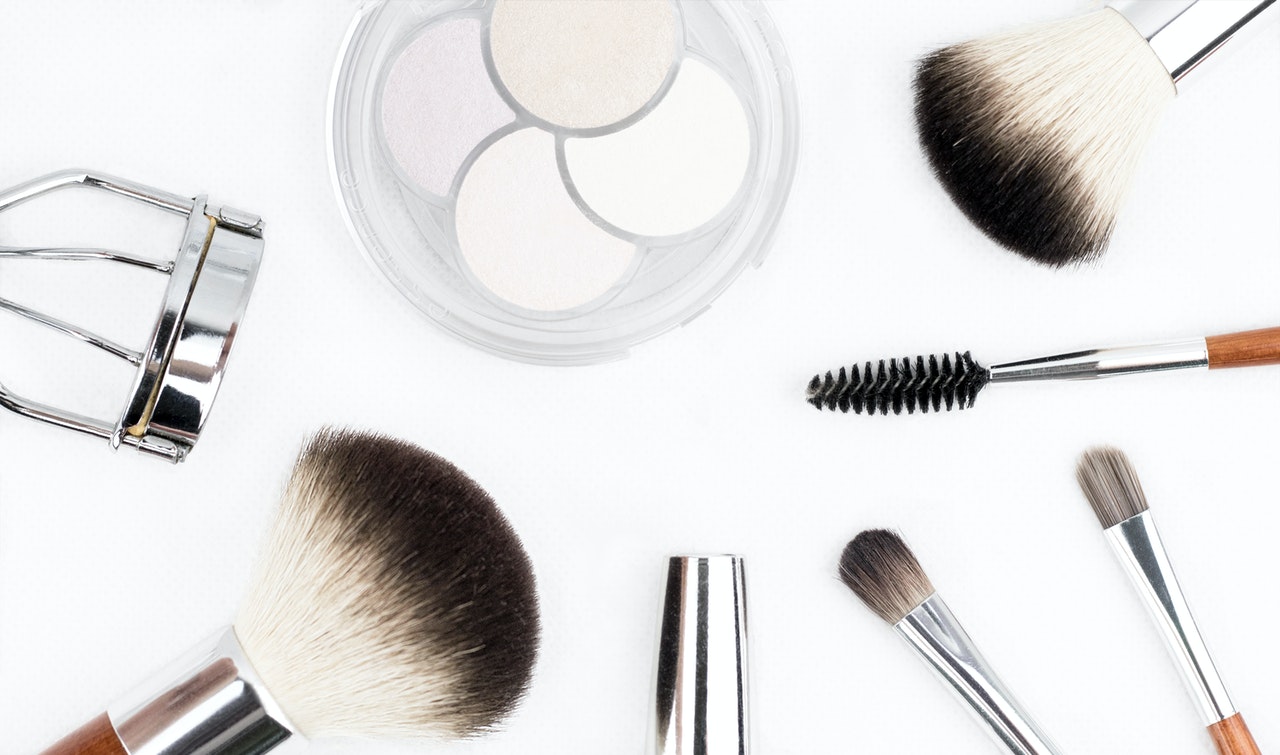Best Moisturizer Cream For Dry Skin

How to pick a healthy moisturizer for dry skin
Many moisturizer creams would have a smoother consistency and be cream-based for dry skin. If you like to skip fragrances or use only fresh ingredients, it’s up to you. The most significant thing is that, using premium materials, the formulation is well made and performs well for your unique skin issue.
Finding the products that work best for you can require a bit of trial and error. A 2016Trusted Source analysis showed that using a moisturizer on a daily basis was more important than the exact ingredients of the moisturizer. Nevertheless, evidence confirms the use of Reputable ceramidesTrusted Source and aquaporins in moisturizer.
Choose a moisturizer that contains at least some of the following ingredients:
- hyaluronic acid
- ceramides
- glycerin
- urea
- antioxidants
- aquaporins
- plant butters and oils
- salicylic acid
Moisturizer tips

Other than just what moisturizer you want, ensuring good skin relies on more. It even matters if you use the moisturizer. Here are few tips for your moisturizer to get the most out of:
- If your skin is already a little bit wet after your shower or bath, apply moisturizer.
- Using a moisturizer containing calming ingredients that are free of acids, fragrances and dyes if you have sensitive skin.
- Until making use of a new product, perform a patch test.
- Purchase from a trustworthy brand that you like.
- For baths and when shaving your hands, avoid additional hot water.
- Drink eight 8-ounce glasses of water a day to keep you hydrated.
- Try using a humidifier at night or holding a tiny one throughout the day on your desk.
- Humidify at least twice a day (more when your skin is especially dry).
- For additional advantages, apply a protective facial cream under your moisturizer.
- If your skin is incredibly parched, mix an oil like jojoba or rosehip oil into your moisturizer. These could be too strong all the time to use.
How Long Do the Symptoms of Eczema Last?
- An inflammatory skin disease that affects approximately 10 percent of people worldwide is eczema (atopic dermatitis). It arises from allergens (substances that induce an allergic reaction) to chemicals, as a result of the reaction of the immune system to certain substances.
Eczema causes rashes and may be:
- red
- itchy
- scaly
- dry
- cracked
- sore or painful
Eczema is considered a chronic (lifelong) disease for others, with flare-ups taking a few weeks for medication to subside. Many individuals should expect their symptoms to subside with age, particularly kids.
Although you may not actually get a specific eczema rash permanently, if you find the eczema causes, you will be at risk of flare-ups (substances that bring on a flareup).
Does eczema go away?
There’s no proven treatment for eczema, and if left unchecked, the rashes won’t automatically go down. Eczema is a persistent disease for certain persons that needs diligent avoidance of stimuli to help prevent flare-ups.
Age is also thought to play a role: approximately 60 percent of individuals who develop eczema as children develop it. As an infant, if you develop eczema, then as you get older you will experience better symptoms.
How long do eczema flare-ups last?

In the end, the recovery time from eczema relies on the root cause.
The rash will generally go away within a few weeks of treatment if you experience a flare-up from a touch eczema cause. (A touch eczema stimulus is a material that when it comes into contact with the skin brings on a flare.)
Allergic stimuli can result in flares that last longer.
Eczema stages
Eczema can be broken down into three stages:
- Chronic. Chronic. This is the most common stage of eczema, and in children it sometimes occurs until they are 12 months old. Generally, chronic eczema persists with intermittent flare-ups over a lifetime, while childhood eczema can strengthen with age.
- Acute. After coming into contact with an irritating material, short-term eczema can result from skin sensitivities. As the skin heals, acute cases last only a few weeks.
- Subacute. This is part of the eczema recovery cycle, which, if left unchecked, can also flare back up into a complete rash.

How to prevent eczema flare-ups
Although there is no proven treatment for eczema, by taking prevention steps, you can help reduce the incidence of flare-ups.
Avoid your triggers
Where possible, the only way you can eliminate an eczema flare-up is to avoid the causes. These involve some known allergens, as well as chemicals or cloth sensitivities.
Stress can also be caused by adrenaline and hormones or making them worse.
Protect your skin
It’s necessary to protect the skin barrier with a moisturising lotion, particularly after bathing. Using a lotion that is free of fragrances and preservatives.
By resisting the temptation to itch any eczema rashes that occur, another way you can protect your skin is. Which will help stop fractures and wounds, which can lead to an infection risk.
If you have open wounds, be sure to protect your skin with bandages.
Control the heat and humidity
While eczema itself can often be dry, heat and humidity usually exacerbate this skin condition. As a means of handling and avoiding flare-ups, try making your house a little drier and colder.
However, some persons suffer flare-ups during the dry months of winter. Using a humidifier will help relieve the symptoms of eczema if this is you.
Also, body heat may play a part. It will help heat escape from your body by wearing breathable fabrics like cotton. After exercises, taking cool showers could also help.
What causes eczema?
Underlying inflammation triggers eczema. Substances that cause negative immune reactions are involved in the production of this inflammatory skin disorder. This includes multiple allergens as well as causes that are genetic and environmental.
Allergies are one common cause of eczema. In reaction to such allergens, including pollen, pet dander, and food, subsequent rashes may occur.
Physical interaction with additives, fibres, and dyes that you may be allergic to is another potential source of eczema. The skin rash arising from this is called touch dermatitis. Eventual culprits include:
- perfumes
- soaps or detergents with preservatives and dyes
- nickel
- wool
- plants, such as poison ivy
- rubbing alcohol
- bleach
- pesticides
While eczema is not an infectious disorder, it appears to occur in families. You may be more at risk if there is a history of allergies and associated eczema symptoms in a parent or other relative.
Digestive disorders and food sensitivities, although their connections to eczema are not as well known, may also play a part.

How is eczema treated?
Depending on the underlying causes, Eczema is treated. A doctor may prescribe either of the following or a combination of these:
Prescription medications
You will need to take oral allergy medicine, topical corticosteroid creams, or both, depending on the cause of the eczema flare-up.
Although steroid creams you add to your skin are meant for short-term use, to help avoid associated reactions, you can need to use allergy medications you take by mouth during the year.
Another alternative is immunosuppressant medications, which, in the case of extreme eczema, slow down immune responses.
Antihistamines
Antihistamines that are over-the-counter (OTC) can help reduce the occurrence of eczema. In addition, these drugs can help stop the urge to itch rashes, especially in kids.
Before you take them, please chat to a doctor about OTC allergy drugs.
Allergy shots
A doctor may prescribe allergen immunotherapy, or “allergy shots,” for serious allergies that do not react well to drugs. These shots are made of small quantities of the substances you are allergic to.
Over the span of many months, your doctor can steadily increase the dose. The concept here is to help develop tolerance to your allergen stimuli so that overall you have less flare-ups.
Natural treatments at home
Any natural treatments may help heal your skin, aside from moisturising your skin.
One form of natural remedy that can calm the itchiness and pain of eczema rashes is oatmeal baths. Make sure to use lukewarm water and cover up directly after with a moisturiser.
There is some evidence that the microbiota can be stabilised by both probiotics and prebiotics to better treat inflammation. More study is, however, needed to support this method in the treatment of eczema.
Takeaway
Eczema is a chronic disease for most adults, and consists of periodic flare-ups.
When cleaned, rashes will take several weeks to clear up. Because these rashes grow from harmful immune responses, whether you minimise your susceptibility to stimuli, there is often a possibility that further flare-ups will occur.
Although eczema may often develop during maturity, in children the onset is more prominent. There is also a strong likelihood that with age, childhood eczema improves.
Speak to your doctor for more information about medications that can relieve your symptoms of eczema.










